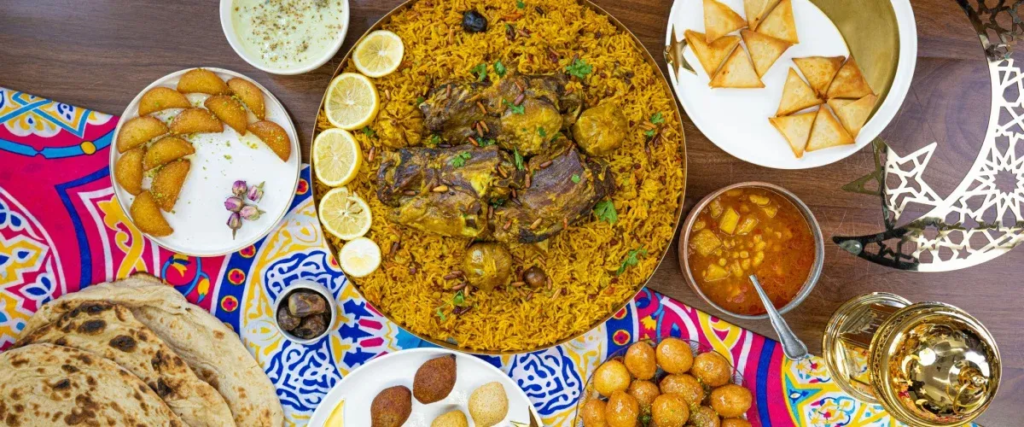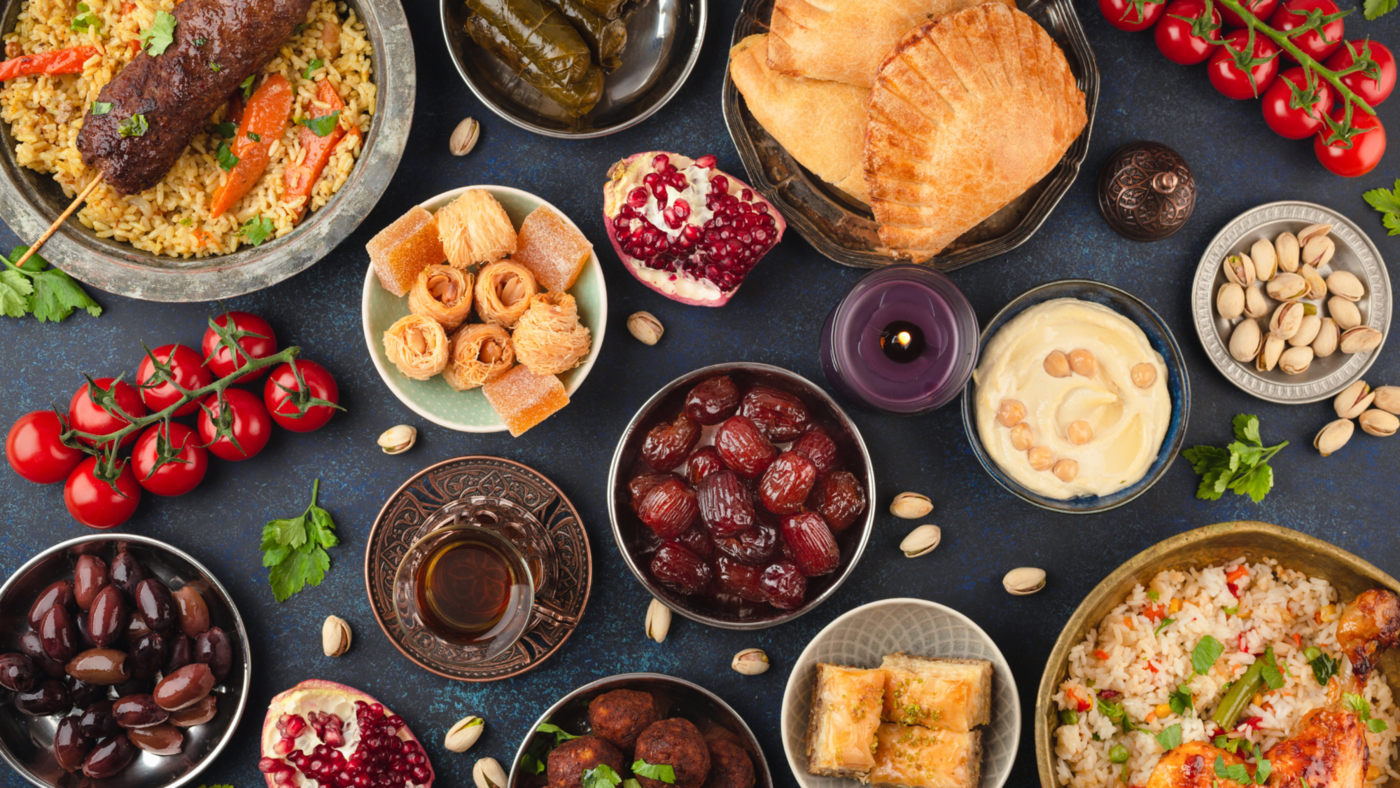Discover the Rich Cultural Significance of Kuwaiti Cuisine, Kuwaiti cuisine is more than just food. It is a vibrant tapestry of history, hospitality, and local pride. When you step into a restaurant in Kuwait, you are stepping into a living tradition. The dishes you taste carry stories passed down through generations, reflecting the land, the sea, and a spirit of generosity.
A Celebration of Heritage on Every Plate
At the heart of Kuwaiti cuisine is a deep connection to the region’s history. Influences from seafarers, traders, and nomads blend together, resulting in dishes like machboos (spiced rice with meat or seafood), jireesh (crushed wheat porridge), and mutabbaq samak (fish layered with rice and spices). Each meal is a celebration of tradition and community, lovingly prepared in local kitchens.
Restaurants in Kuwait treat heritage with reverence. They take care to present recipes in a way that honors the past, often with family recipe touches or special regional variations. When diners sit down, they are tasting more than a meal, they are tasting a piece of Kuwaiti identity.
Warm Hospitality at the Core
One of the most powerful elements of Kuwaiti cuisine culture is hospitality. Local restaurants embody this with warmth and generosity. A single visit often turns into an afternoon or evening shared over multiple courses, rice dishes, grilled meats, aromatic soups, salads, and sweets like luqaimat (honey drizzled dough balls).
Servers and hosts take genuine pride in making guests feel welcome, often offering extras, refills, and heartfelt conversation. This tradition of hospitality strengthens social bonds. Meals become memories, neighbors become family, and food becomes a language of kindness.

Seasonal and Local Ingredients
Kuwaiti cuisine shines because of its commitment to fresh, local, and seasonal ingredients. Fishermen bring in catch each day, hamour, shrimp, or kingfish, and markets overflow with dates, vegetables, and delicate spices like saffron, black lime, and cardamom.
Local restaurants celebrate this connection to the land and sea. You will find menus that shift with the seasons, daily specials based on the freshest catch, and side dishes that highlight locally grown produce. This encourages sustainable practices while deepening the connection between food and place.
Fusion Without Compromise
Over decades, Kuwait welcomed guests and influences from around the Gulf, the Indian subcontinent, and beyond. Local restaurants now often serve fusion dishes that combine Kuwaiti tradition with international flair, like lamb kebabs served with Indian style chutneys, or rice dishes infused with Persian spices.
Yet these restaurants never lose sight of their roots. Fusion is treated with respect. Ingredients and preparation remain authentic, even as new layers of flavour are added. The result is a bold and exciting culinary evolution without ever compromising cultural identity.
Connecting Generations at the Table
A Kuwaiti restaurant visit often spans generations. Grandparents share stories of old Kuwait while grandchildren laugh over new experiences. Parents nod approvingly when children try traditional offerings, while young adults delight in modern twists.
Restaurants play an important role in preserving culture. They serve as living classrooms for younger generations who may have grown up in globalised households. Dishes, customs, and even small rituals like breaking bread together or sipping hot kataifi tea stay alive through shared meal experiences.
The Role of Women and Their Culinary Legacy
Many traditional recipes in Kuwaiti cuisine come from the kitchens of grandmothers and mothers. In local restaurants, chefs often highlight women’s culinary heritage, either through family designed dishes or storytelling menus that honour matriarchal legacy.
When you dine in a Kuwaiti restaurant, you often taste dishes named after women or cooked using their time tested methods. This brings a personal, human touch to the food, bridging the space between organized kitchen and home kitchen.

Dining as Cultural Exchange
Kuwaiti restaurants are gateways to cultural exchange. Tourists, expats, and visitors come eager to taste harees (wheat and meat porridge) or balaleet (sweet vermicelli with eggs) for the first time. Restaurant staff delight in sharing their history and answering questions, often demonstrating how spices are used or how particular dishes are served during special occasions like Ramadan or Eid.
This exchange goes both ways. Diners may ask for adjustments or express curiosity about dishes, prompting chefs to adapt and explain. The result is mutual respect, education, and connection. Over time, Kuwaiti cuisine becomes more widely appreciated and understood around the world.
Modern Restaurant Scenes Embracing Tradition
In Kuwait City, you will find elegant fine dining venues and humble family run eateries side by side. The modern dining scene often blends innovative presentation and global techniques with time honoured recipes. Some high end restaurants reinterpret machboos on open flame grills, others plate local seafood with minimalist design, yet the essence remains unmistakably Kuwaiti.
Even in food courts and street side favourites, kitchens maintain extensive care in spice blends and cooking methods. That blend of innovation and tradition resonates deeply, offering access to everyone from curious tourists to devoted locals.
Why Kuwaiti Cuisine Matters
Kuwaiti cuisine matters because it is a living, evolving expression of culture, memory, and community. Each restaurant meal carries meaning, inviting diners to reflect on history, enjoy heartfelt hospitality, and connect with others. It sustains traditions, fosters generational ties, and opens doors to the world through taste.
Whether you take your first bite of machboos or revisit the familiar warmth of luqaimat with tea, you are partaking in something far greater than food. You are tuning into the soul of Kuwait, served one dish at a time.
Do follow Gulf Magazine on Instagram.
Also Read – Role of Delivery Apps in Kuwait’s Food Service Growth



